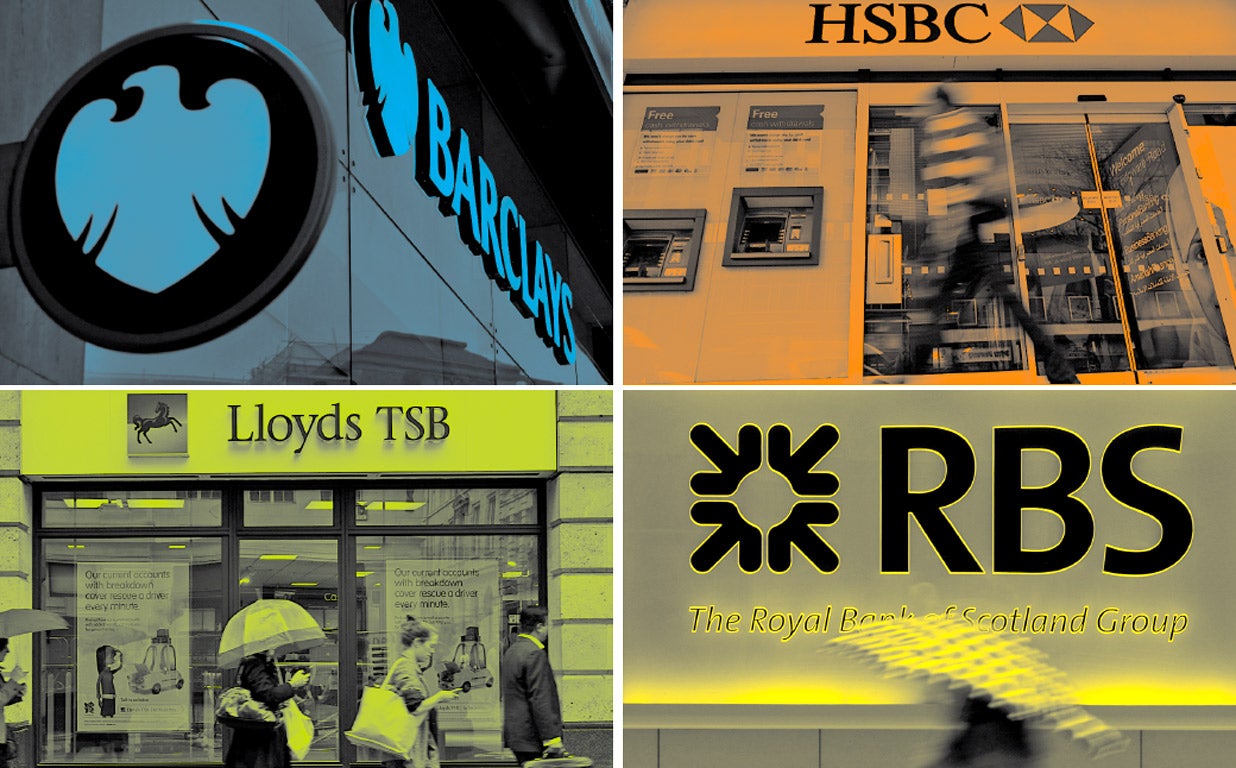New Bank of England stress test scenario models ongoing weak profits and more fines for lenders
British banks have been hit with misconduct and compensation costs totalling more than £50bn in recent years

Your support helps us to tell the story
From reproductive rights to climate change to Big Tech, The Independent is on the ground when the story is developing. Whether it's investigating the financials of Elon Musk's pro-Trump PAC or producing our latest documentary, 'The A Word', which shines a light on the American women fighting for reproductive rights, we know how important it is to parse out the facts from the messaging.
At such a critical moment in US history, we need reporters on the ground. Your donation allows us to keep sending journalists to speak to both sides of the story.
The Independent is trusted by Americans across the entire political spectrum. And unlike many other quality news outlets, we choose not to lock Americans out of our reporting and analysis with paywalls. We believe quality journalism should be available to everyone, paid for by those who can afford it.
Your support makes all the difference.The Bank of England will this year stress test banks on a new scenario in which their profits remain chronically weak and they continue to be hit with large misconduct costs by regulators.
Alongside its regular annual stress test scenarios, the Bank today unveiled a new “exploratory stress scenario” with a seven-year horizon for what it calls “a structurally more challenging operating environment”.
“The test will incorporate weak global growth, persistently low interest rates, falling world trade and cross-border banking activity, increased competitive pressure on large UK banks from smaller banks and non-banks, and a continuation of costs related to misconduct,” the Bank’s Financial Policy Committee (FPC) said.
UK banks have experienced a huge hit to their profitability since the global financial crisis and have still not recovered.
The Royal Bank of Scotland last month posted a £6.96bn loss for 2016, the ninth consecutive year of losses by the taxpayer bailed-out lender.
British banks have also been hit with misconduct and compensation costs amounting to more than £50bn.
This relates to a wide range of offences ranging from sales staff misselling payment protection insurance to investment bank traders rigging the Libor interest rate.
Several banks are still under investigation for misconduct and more fines are expected.
The Bank emphasises that none of its stress scenarios should be interpreted as an official forecast, but the new test is nevertheless likely to reflect concerns that banks are still very far from being out of the woods in terms of fines and also over the possibility that they could see permanently lower profitability.
The outcome of the tests will not lead to requirements later this year on lenders to raise more equity capital. And there will not be a bank-by-bank breakdown of results.
The Bank said the the biennial tests would inform regulators over “how banks could meet regulatory requirements and build sustainable business models in the face of ... headwinds”.
The scenario that will be modelled in the Bank’s regular stress test this year will include a 4.7 per cent decline in UK GDP, a jump in the Bank rate to 4 per cent and a 33 per cent slump in house prices.
Another scenario that will be modelled is weak growth, a low bank rate and increased competition to lenders.
The annual stress test models the performance of banks over five years, rather than seven.
The results of this year's test will be published in the final quarter of 2017.
RBS failed last year’s stress test and was forced to raise more capital as a result.
Barclays and Standard Chartered also came up short on some metrics.
Some economists and analysts argue that the Bank’s tests are insufficiently rigorous and give a false picture of the sector’s resilience.
The Bank’s FPC said nothing new about the implications of Brexit for the financial sector, noting only that it will “oversee contingency plans to mitigate risks to financial stability as this [Brexit] process unfolds” and that it would “ensure regulated firms have comprehensive plans in place to operate in a range of possible outcomes”.
UK banks are now universally expected to lose their financial “passport” to sell services to EU customers after 2019, prompting lenders to proceed with plans to move some staff to Europe.
Join our commenting forum
Join thought-provoking conversations, follow other Independent readers and see their replies
Comments